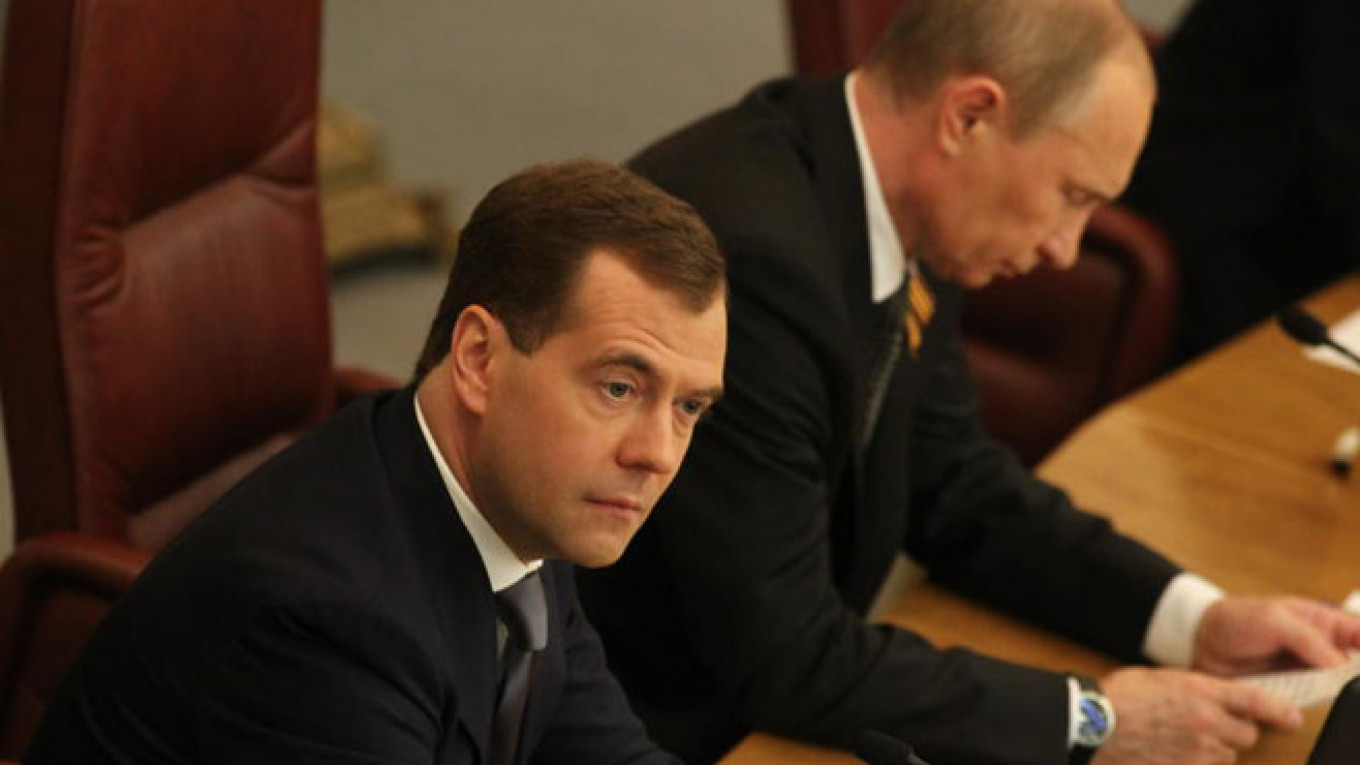The Cabinet could increase VAT by 2 percent as early as next year in an attempt to tackle the rapidly deepening budget deficit in the Russian regions, Vedomosti reported Thursday, citing two unidentified federal officials.
The government has been looking into different ways to boost tax revenues for weeks, including a Finance Ministry proposal earlier this month to introduce a 3 percent sales tax starting in 2015.
Another option was to raise income tax from 13 to 15 percent and VAT from 18 to 20 percent after 2018, but the two officials told the newspaper that there are proposals to raise VAT as soon as next year.
VAT is one of the budget's biggest sources of financing. It is expected to generate 3.7 trillion rubles ($105 billion) this year and 4.2 trillion rubles ($119 billion) in 2015.
The officials estimated that raising VAT by 2 percent next year could raise 500 billion rubles ($14 billion). This is more than twice what a sales tax would generate: the Finance Ministry recently estimated that a 3 percent sales tax would bring in 200 billion rubles a year ($5.7 million).
The idea has not been discussed with President Vladimir Putin, although Prime Minister Dmitry Medvedev has already given the idea his backing, one of the officials said. A final decision is expected by the end of the month.
In his budget speech for 2012, Putin said taxes on the nonenergy sector would not be raised during his current term in office, a pledge that was referenced in the Finance Ministry's tax policy for 2015 to 2017.
However, a tax increase of some kind may be inevitable. "The situation with the budget leaves no other option. … Now there are no beautiful solutions — we are choosing between bad and worse," the official said.
The bleak situation in the regions is in large part a consequence of Putin's presidential decrees on spending, which forced local assembly's to plunge themselves into debt to keep up with unsustainable investment plans. The Finance Ministry estimates that the regions' total budget deficit will reach 857 billion rubles ($25 billion) in 2014 — 33.5 percent higher than in 2013, Prime reported earlier this month, citing data from ITAR-Tass.
A Message from The Moscow Times:
Dear readers,
We are facing unprecedented challenges. Russia's Prosecutor General's Office has designated The Moscow Times as an "undesirable" organization, criminalizing our work and putting our staff at risk of prosecution. This follows our earlier unjust labeling as a "foreign agent."
These actions are direct attempts to silence independent journalism in Russia. The authorities claim our work "discredits the decisions of the Russian leadership." We see things differently: we strive to provide accurate, unbiased reporting on Russia.
We, the journalists of The Moscow Times, refuse to be silenced. But to continue our work, we need your help.
Your support, no matter how small, makes a world of difference. If you can, please support us monthly starting from just $2. It's quick to set up, and every contribution makes a significant impact.
By supporting The Moscow Times, you're defending open, independent journalism in the face of repression. Thank you for standing with us.
Remind me later.






